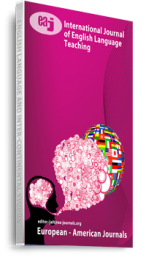The ability to effectively communicate in English is widely recognized as a crucial attribute for contemporary communication and social advancement. In the specific context of Bangladesh, despite English instruction being provided to students from the elementary level, the endeavors to enhance oral proficiency in the English language appear to fall short of their intended objectives even after a twelve-year duration of instruction, resulting in unexpected subpar speaking abilities. Insufficient research has been conducted in Bangladesh to address the issue of poor learning policies and the students’ lack of cognitive understanding and proficiency in English. This lack of research hinders the development of effective remedies to this pressing issue. This study investigates suitable learning materials for undergraduate learners at Chittagong Independent University in order to enhance their speaking and practicing skills. The data was obtained through the administration of 22 closed-ended and 3 open-ended questionnaires to a sample of 120 learners, selected randomly from five distinct sections. The development and implementation of the surveys were thereafter accompanied by the renowned Likert Scale (1932). The analysis conducted in this study suggests several recommended strategies for effectively engaging all learners. The learning theory of Cognitive Development places greater emphasis on the fundamental psychological concerns compared to other obstacles.
Keywords: Bangladeshi EFL classroom, effective solution, learner’s motivation, oral communication challenges, undergraduate English learning

